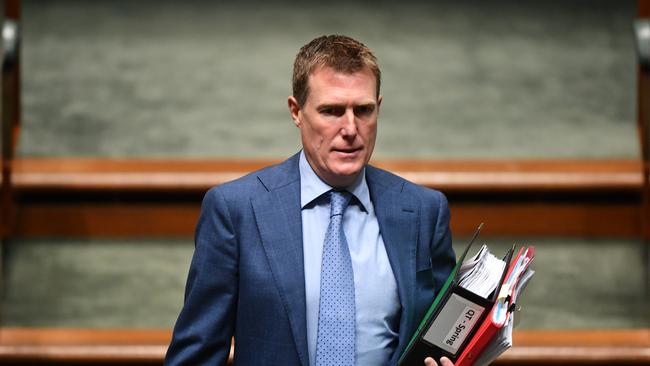
Australia risks falling into an epic change that would gravely jeopardise the ability of religious schools to pursue their mission and uphold their faith, the Morrison government warned yesterday.
This follows Labor’s decision to act unilaterally to protect gay students, with Attorney-General Christian Porter issuing the warning: “Labor’s bill represents radical change because it provides no legislative ability for schools to act in accordance with their beliefs and the tenets of their faith.
“It completely removes the ability of religious educational institutions to maintain their ethos through what they teach and the rules of conduct they impose on students. This is because Labor’s bill would, for the first time, expose religious schools to litigation under the Sex Discrimination Act merely because they impose reasonable rules such as requiring students to attend chapel.”
The Attorney-General lays a charge at Labor’s door — that the opposition is denying the legitimate rights of the one million Australians in religious school communities in order to grandstand on gay rights.
The Labor bill moved by opposition Senate leader Penny Wong has a good prospect of passing the Senate, given that chamber agreed with Labor’s procedural motion for a Senate vote on Monday to pass this law as quickly as possible.
Every sign is that the religious schools are broken and prey to radical change. Their will to defend their centuries-old, faith-based teaching mission is compromised by their terror of being labelled homophobic, while their parental communities do not comprehend what is happening.
There is universal agreement that the law allowing schools to remove students because of sex or gender be repealed. That is not the issue, though it is constantly presented as the issue. The real debate is about the remaining protections for religious schools.
Porter’s warning is fundamental — that under the guise of protecting gay students the national parliament is moving towards the undermining of religious education in Australia.
Labor, in the words of Wong, backed by opposition legal affairs spokesman Mark Dreyfus, says “nothing in this bill would compromise the ability of churches to continue to uphold their religious teachings, whether in the classroom or through the enforcement of school rules”.
Dreyfus said Porter had made a couple of attempts earlier to produce a bill but Labor felt this was inadequate. The test is getting the balance right in the law. The reality is that a critical shift in that balance can undermine an education system whose legal protections are fragile.
It is absurd to believe activists will not test a new legal structure.
Labor’s aim is to embarrass the government and secure the new law by Christmas. It decided to act unilaterally after the negotiations with the government to reach a shared position broke down. “If this government won’t act, Labor will,” Wong said in her second-reading speech.
“Australians support this change, the parliament supports this change and the Morrison government claimed that it supports this change. Let’s get this done before Christmas.”
The government will fight Labor and move amendments in both the Senate and the house to protect the mission of religious schools. In the current environment, it is almost certain this will be depicted as a retreat from its pledge to protect gay students.
Porter repudiates Labor’s claim that nothing in its bill threatens religious education. “Labor has failed to listen to the genuine concerns of religious educational institutions and their more than one million families in what amounts to a radical approach to such a fundamental overhaul of exemptions that Labor inserted in 2013,” he said.
“Labor clearly isn’t genuine about this issue. It is grandstanding without considering the legitimate concerns of faith-based schools and their families and it wants to gag debate after one hour to ram this radical change through without a proper analysis by parliament.”
Porter said the government’s amendments would ensure religious schools could impose reasonable rules with being exposed to the threat of litigation or, if litigation did occur, they meant the courts and Human Rights Commission would have to consider the religious nature of the institution in determining whether a rule was reasonable and made in good faith.
Given these statements from the Attorney-General, how can a responsible parliament pass such a law in a rush in the coming week?



